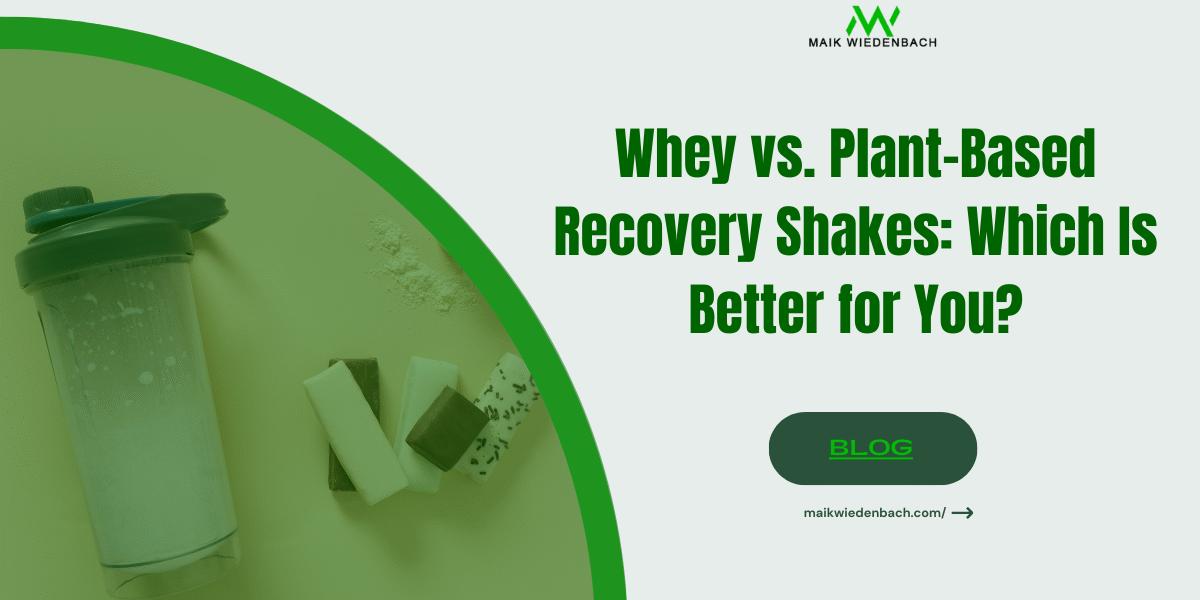Another supplement debate. Another wave of marketing claims. Another reason for confusion.
Here’s what you actually need to know: both plant-based and whey protein can build muscle. The difference between them is smaller than the supplement industry wants you to believe.
I’ve been coaching athletes for over two decades. I’ve seen every protein powder trend come and go. The people who get results? They pick one that works with their digestion, hit their protein targets consistently, and train hard.
Not sexy. Not viral. But it works all the time.
This guide cuts through the noise and gives you the science-backed truth about plant-based protein powder vs whey. After that, you can make the right choice for your goals.
Understanding the Basics: What Are These Proteins?
Whey protein comes from milk during cheese production. When cheesemakers separate curds from liquid, the remaining whey gets filtered and dried into powder. You’ll find three types:
- Whey concentrate: 70-80% protein, some lactose, and fat
- Whey isolate: 90%+ protein, minimal lactose
- Whey hydrolysate: Pre-digested for faster absorption
Plant-based protein comes from peas, rice, hemp, soy, or pumpkin seeds. Single-source plant proteins are usually incomplete (missing some amino acids), so quality brands blend multiple sources to create a complete profile.
When comparing plant-based protein powder vs whey, understand this: source matters less than total protein intake and consistency.
Protein Quality: The Real Differences
Here’s where whey has a legitimate advantage.
Whey is a complete protein with all nine essential amino acids. It’s particularly high in leucine (2.5-3g per serving)—the amino acid that triggers muscle protein synthesis. It absorbs quickly, making it ideal post-workout.
Plant-based proteins can match this profile when properly blended. Pea and rice protein together cover all essential amino acids. Quality plant blends provide 1.5-2.5g leucine per serving—slightly less than whey, but still effective.
Does this difference matter?
For elite athletes chasing every 0.5% advantage? Maybe. For everyone else? Not really. If you’re hitting 1.6-2.2g protein per kilogram of body weight daily, the source becomes secondary.
Nutritional Comparison
| Factor | Whey Protein | Plant-Based Protein |
| Protein per serving | 20-25g | 20-25g |
| Complete amino acids | Yes | Yes (if blended) |
| Leucine content | 2.5-3g | 1.5-2.5g |
| Absorption rate | Fast (1-2 hours) | Moderate (2-3 hours) |
| Fiber | Minimal | 3-8g |
| Calories | 100-130 | 110-150 |
Can You Build Muscle with Plant-Based Protein?
Yes.
Research shows plant-based protein supports muscle growth comparably to whey when total protein intake is adequate. You might need slightly more plant-based protein to match whey’s leucine content, but the difference is minimal.
A 2021 study in Nutrients found no significant difference in strength gains between whey and plant protein when both groups consumed adequate total protein. Another study in Frontiers in Nutrition showed that futsal players using a pea-based blend had identical body composition and performance outcomes compared to those using whey.
The key: consume enough total protein daily. If you’re doing that, the whey vs plant-based protein powder debate becomes largely academic.
Digestibility: Which Is Easier on Your Stomach?
This is highly individual.
Whey protein contains lactose, which can be a problem if you’re lactose intolerant. Even whey isolate (which has less lactose) can cause bloating, gas, and stomach upset in sensitive individuals. Some people also react to dairy proteins themselves, not just the lactose.
Plant-based protein is naturally lactose-free, making it easier for many people to digest. However, pea protein can cause bloating in those sensitive to FODMAPs, and soy is a common allergen.
Common Side Effects
| Issue | Whey Protein | Plant-Based Protein |
| Lactose content | Yes (unless isolate) | No |
| Common allergens | Dairy | Soy, pea (varies) |
| Bloating risk | Moderate | Low to moderate |
| Suitable for vegans | No | Yes |
My take: try both and see how your body responds. No amount of “superior amino acid profile” matters if the protein powder destroys your stomach.
Which Protein Powder Is Healthiest?
Depends on your definition of “healthy.”
For heart health, plant-based wins. Research shows plant proteins reduce LDL cholesterol and inflammatory markers compared to animal proteins. Cardiologists generally favour plant-based diets for cardiovascular disease prevention.
For muscle building, whey has a slight edge due to faster absorption and higher leucine content. But again—the difference is small if total protein intake is adequate.
For overall nutrition, plant-based proteins often contain fiber, antioxidants, and phytonutrients that whey lacks. Whey provides primarily protein with minimal additional nutrients.
Neither is “unhealthy.” Both can be part of a solid nutrition plan.
Making Your Decision: Which Should You Choose?
Stop overthinking this. Here’s the decision framework:
Choose whey protein if:
- You tolerate dairy well
- You want maximum muscle-building efficiency
- You prefer faster post-workout absorption
- You’re budget-conscious (whey concentrate is cost-effective)
Choose plant-based protein if:
- You’re vegan or lactose intolerant
- You prioritise heart health
- You want additional fiber and phytonutrients
- You have dairy sensitivities
The truth: for 95% of people, the difference in muscle-building results between quality whey and quality plant-based protein is negligible. What matters more is hitting your total daily protein target consistently.
What Do the Experts Say?
Most doctors and nutritionists agree: both work.
The emphasis should be on whole food protein sources—chicken, fish, eggs, legumes, tofu. Use protein powder to supplement, not replace, real food.
For the “cleanest” option, look for:
- Third-party testing (NSF Certified for Sport, Informed Choice)
- Minimal additives and artificial sweeteners
- Organic certification (if budget allows)
- Transparent ingredient lists
Heavy metal contamination can occur in both plant and whey proteins, so third-party testing matters more than the protein source itself.
The Bottom Line
The plant-based protein powder vs whey debate is overblown.
Both work. Both build muscle. Both support recovery when paired with consistent training and adequate total protein intake.
Whey has a slight advantage in amino acid profile and absorption speed. Plant-based foods have advantages in heart health, fiber content, and digestibility for many people.
Pick one based on your dietary preferences, budget, and how your body responds. Then stop worrying about it and focus on what actually drives results: progressive overload, consistent training, enough protein from all sources, and proper recovery.
The protein powder you’ll actually use consistently is the best one for you.
Ready to optimise your nutrition and training? Train with our coaches or book a consultation.
—Maik
Frequently Asked Questions
No single answer. Plant-based proteins may have more heavy metals (particularly from rice and hemp), but they also offer cardiovascular benefits that whey doesn’t. Neither is definitively “healthier”—it depends on individual health goals and tolerances.
Depends on the person. Whey isolate digests quickly but causes issues for those with lactose intolerance. Plant proteins are gentler for many people, though some experience bloating from pea or soy protein.
Yes, marginally—whey has superior amino acid ratios and faster absorption. But the difference is so small it won’t matter unless you’re a competitive athlete optimising every variable. For everyone else, pick what you tolerate best and hit your protein targets.
Certainly. As long as you’re not allergic to the ingredients and you’re balancing it with whole food proteins, daily use is fine.
No. Muscle building depends on total protein intake, progressive overload in training, and recovery. Plant-based diets can absolutely support muscle growth—though meal planning can be trickier since plant proteins are less calorie-dense.
It comes down to personal preference. Try a few options, see what agrees with your digestion, check the protein content per serving (aim for 20-25g), and stick with what works.

Maik Wiedenbach is a Hall of Fame swimmer turned bodybuilding champion and fitness model featured in Muscle & Fitness and Men’s Journal. An NYU adjunct professor and award-winning coach, he founded New York’s most sought-after personal training gym.

